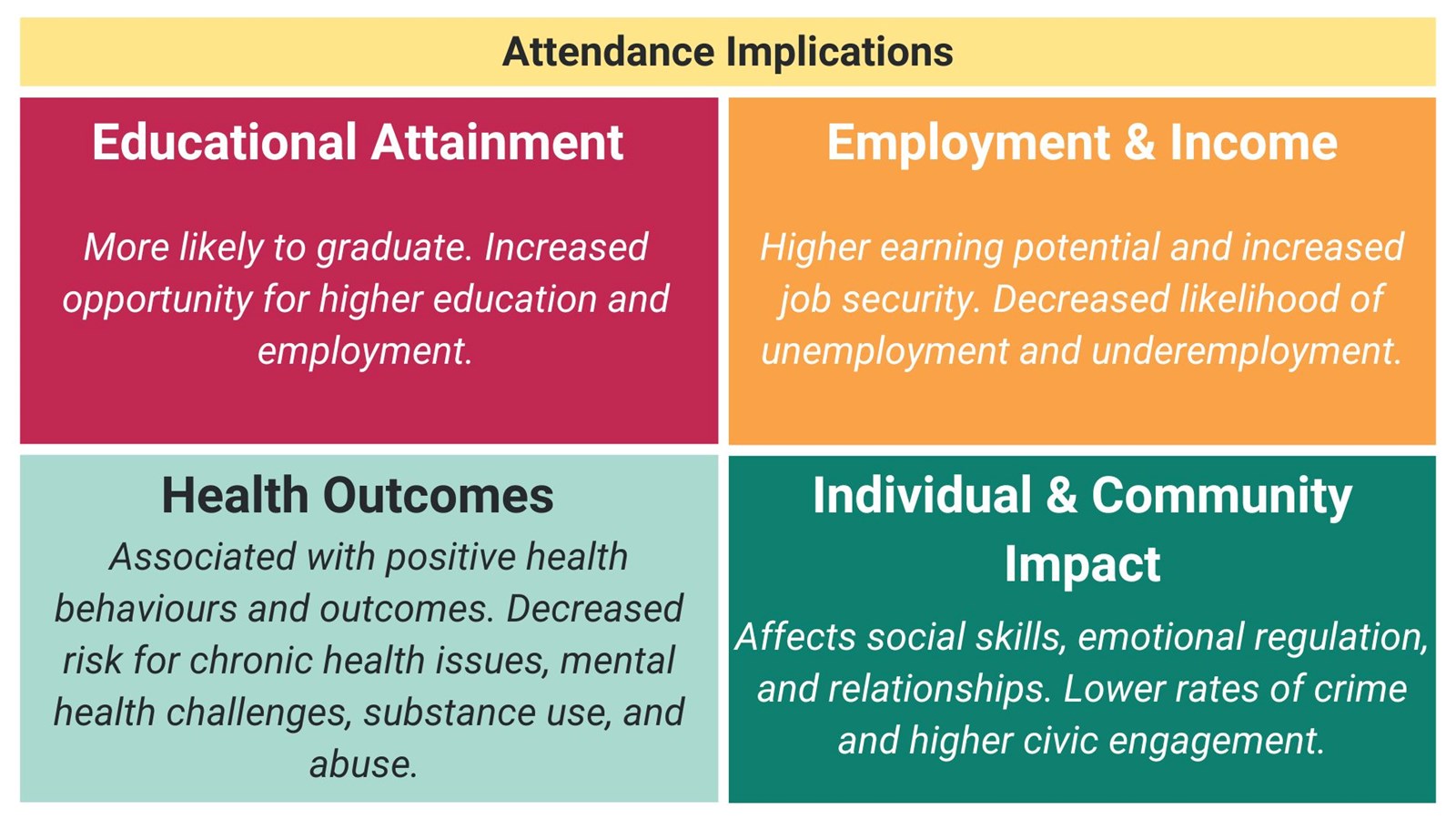School Attendance: Every Day Matters

As students return from a well-deserved break, they are settling back into their routines and reconnecting with friends and teachers. With just under three months left in the school year, each lesson, discussion, and experience contribute to their success. Given that youth spend a significant amount of time in school, it's no surprise that their school experiences play a crucial role in shaping their cognitive development, as well as their physical and mental well-being. Research shows that consistent attendance is essential not only for strengthening academic performance but also for cultivating emotional connections. Students who feel connected to their school are more likely to develop strong emotional bonds and increased self-confidence.
Understanding Barriers to School Attendance
Regular school attendance helps students build life skills, friendships, and develop a love for learning. While some students may face barriers to attending school like anxiety, social challenges, or other difficulties — there is support available to help find a solution. By working together, families and schools can create an environment where students feel supported and excited to learn. If a student is struggling with attendance, asking the right questions can help uncover the underlying issue:
How do they feel about school?
Are certain subjects or environments causing stress?
Are they facing social challenges, like making friends or feeling left out?
Are they feeling overwhelmed academically?
How is their mental and emotional well-being?
Are there family or home-related factors affecting attendance?
Do they feel supported by their teachers and school staff?
Sometimes, even small issues can feel big to kids. Understanding the challenges that they are facing is the first step to finding solutions that can help them feel more motivated to attend school regularly.
Did you know?
In Canada, chronic absenteeism is defined as missing 10% of the school year, which is about 19 days. That’s just two days a month, which may not seem like much — but over time, those absences can make it harder for students to stay on track. Even one day missed can mean missing important skills and group activities that help kids grow.
The Power of Collaborative Support
When schools, families, and communities work together, attendance improves, students feel more engaged, and academic success increases. Recognizing that some families face challenges like food insecurity, mental health concerns, or transportation difficulties, qathet School District staff are there to support. There are services offered such as open-access food programs and the district’s partnership with qathet’s Integrated Child & Youth team — there to support.
Building Strong Attendance Habits
You can help your student develop lifelong attendance habits by:
- Establishing consistent bedtimes and morning routines
- Encouraging responsibility for missed school work
- Keeping open, on-going communication with teachers
- Addressing school-related stress before it escalates
- Sharing and/or seeking out best practices from other parents/families/guardians
- Seeking support from school staff or community programs — whenever needed!
“The positive impacts of regular attendance at school cannot be underestimated. From connection and brain development right through to employability and overall health, each day at school matters – now and in the long term” - Vianne Kintzinger, Interim Superintendent
Every Single Day Counts!
Regular school attendance sets a foundation for lifelong success. When schools, families, and communities work together to create a culture of belonging and engagement, students develop habits that set them up for lifelong achievement. If challenges exist that make attendance difficult, help is available — please reach out! We want every student to graduate with dignity, purpose, and many exciting options for their future.
Resources:
- Center for Parent and Teen Communication: www.parentandteen.com
- Kids Help Phone: www.kidshelpphone.ca or call 1-800-668-6868, or text 686868
- Child, Youth, and Family Crisis Line: 1-877-377-7775 ext. 1 for crisis
- Anxiety Canada Youth: www.youth.anxietycanada.com
- Canadian Addiction Counsellors Certification Federation – Free Virtual Addiction Counselling Services: www.caccf.live.clinic
- Relaxation Strategies: www.gonoodle.com
- ERASE Bullying



